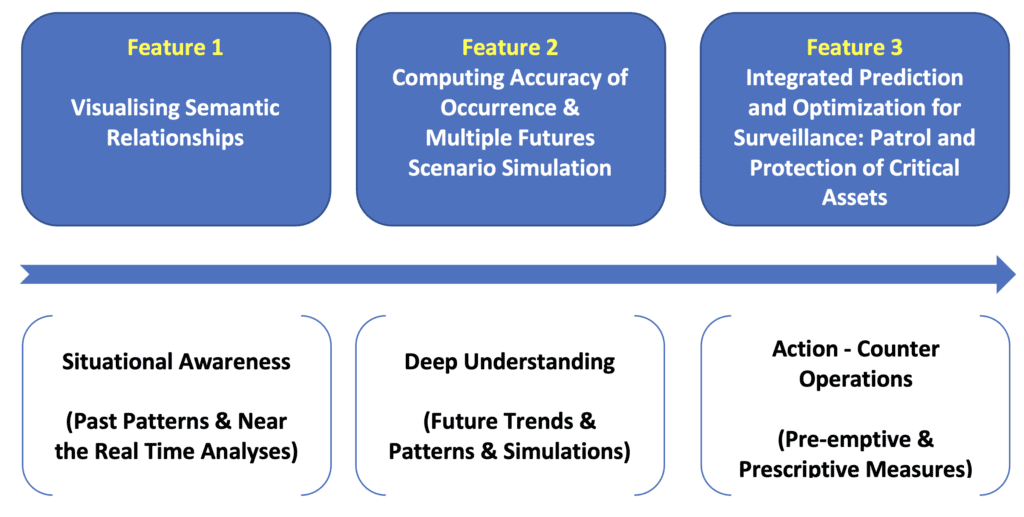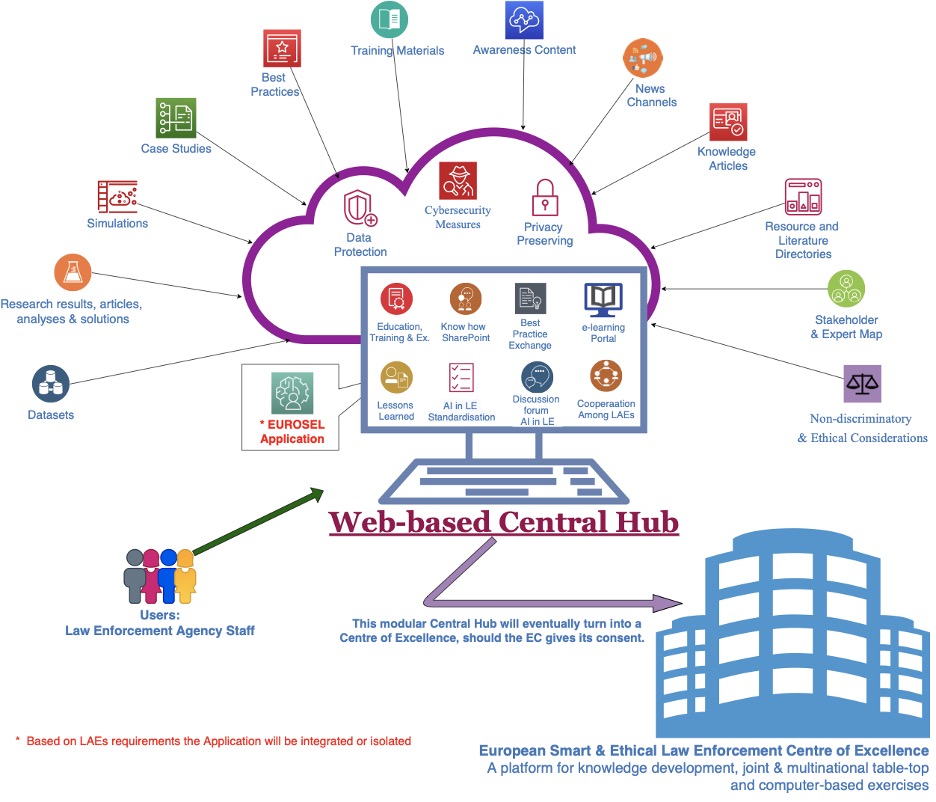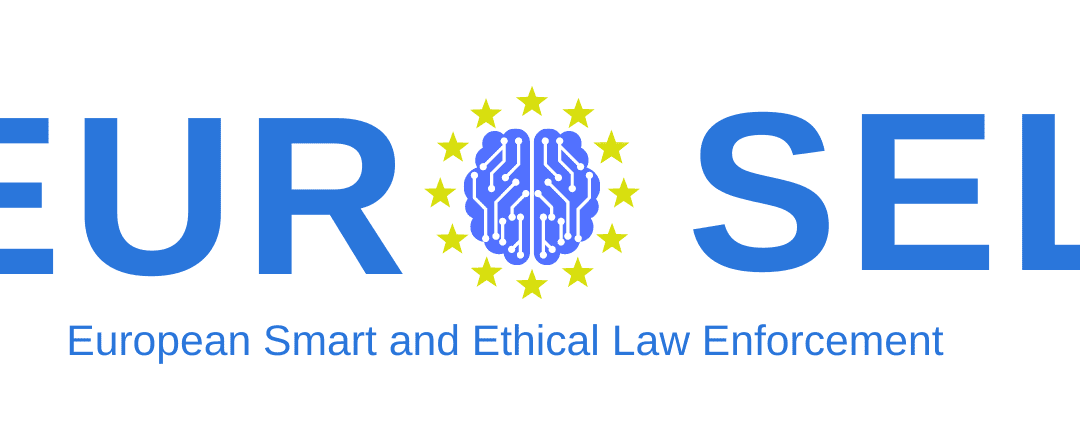It is not a secret that organised crime and terrorist organisations are perfectly manipulating information technologies and social media for their purposes which span from communication to fundraising or from recruiting to operational planning. This superiority in exploiting advanced technologies not only foster their modus operandi but also render protection against law enforcement agencies (LEAs).
Unfortunately, and by definition, LEAs lag behind in utilising technology and social media as effective as their adversaries. Because both the judicial and the legislative powers have (and should have) an oversight on executive’s (LEAs’) daily work and use of ‘legitimate violence’. This is a must-have for a democratic state, yet, it has a side effect on the agile functioning of LEAs.
To render dynamism and superiority over their opponents, Beyond the Horizon (BtH) International Strategic Studies Group, a non-profit and independent think and do tank, focusing, inter alia, disruptive technologies and peace & security studies, formed a consortium with distinguished partners; CENTRIC (Sheffield Hallam University), TUDelft (Delft University of Technology), ERAU (Embry-Riddle Aeronautical University), UA (University of Antwerp), VUB (Vrije Universiteit Brussel), HC (Hybrid Core), IMEC-ETRO, CESIE, IS (Institut Sapiens), KEMEA (Centre for Security Studies) and LEAs from Germany, Greece, Slovakia, Hungary and Albania (HFOV, HP, ISEMI, KR, ASP). This consortium worked meticulously on a Horizon 2020 project; European Smart and Ethical LEAs (EUROSEL).
EUROSEL is an innovative project constructed on two pillars. First, EUROSEL will develop an explainable AI application with an enhanced cross-functional (human-machine teaming) approach. Throughout the project, EUROSEL Consortium will favour a “human in‐the‐loop” arrangement which will allow interactional arrangements between the human user and its outputs (the application and the hub). Second, ethical concerns are taken very seriously, in parallel with the EU’s AI policy. While Prof Catholijn M. Jonker (TUDelft), a leading expert on explainable AI will provide advice on how to code trustworthy and explainable AI, Institut Sapiens will keep an eye on codes to be ethical and non-discriminatory. Thus, no automation in decision making and no RoboLEA is foreseen in the project.
Within this framework, EUROSEL project have two main outputs; hybrid intelligence-powered smart and ethical decision support application and a web-based central hub for further education, training, exercise purposes, exchanging know-how & best practices, standardisation of ethical AI use cases in support of LEAs.

This hybrid intelligence[1]-powered decision support application will be developed by an enhanced cross-functional hybrid (human-machine teaming) approach. As the main outcome of the project, this decision support application will be explainable, trustworthy and ethical which will enable human interaction and oversight. Human augmentation and amplification will be implemented throughout the process.
This application will leverage the efforts of the LEAs in monitoring, detecting in near real-time and aggregating criminal, terrorist, radical and extremist activities especially in the information space as well as providing automated reasoning and simulation service augmented and amplified by human intelligence.
Moreover, this framework will be configured as an upgradable and reusable platform in the long run to counter the full spectrum of criminal and terrorist/radical/extremist threats and risks. The hybrid intelligence-powered application will provide three main features through a temporal intercorrelation:
 Diagram 1 – Application Features and Temporal Intercorrelation
Diagram 1 – Application Features and Temporal Intercorrelation

The web-based central hub will be a virtual space to support LEA staff throughout the project and beyond, familiarize LEA’s to the system, multiply their benefits, increase efficiency and foster cooperation among LEAs. Web-based central hub will create an online community for continuous learning. Project outcomes and products will be fed into this web-based Central Hub. All the datasets; project research results, multi-authored articles, interdisciplinary analysis and solutions; simulations, case studies, best practices, training materials, awareness content, news channels, knowledge articles, resource and literature directories, stakeholder and expert maps, non-discriminatory and ethical considerations content will provide input to the Central Hub.
The content of the web-based Central Hub will provide LEAs with education, training and exercises; exchange and data base of know-how, best practices, lessons identified/learned in applied smart and ethical law enforcement, e-learning portal, standardisation of ethical, societal, legal and organizational aspects of AI use cases, discussion forum on ethical AI use in law enforcement, individual or group simulations, practical exercises, case studies, role play and seminars.
The integration of the EUROSEL Application will be decided on following a close coordination with the LEAs and cybersecurity experts. The cloud environment will be secured with privacy preserving & data protection and sufficient cybersecurity measures against external intervention.

Diagram 2 – Central Hub Concept
Last but not least, should the commission gives its consent, the Central Hub would eventually transform into a European Smart and Ethical Law Enforcement Centre of Excellence, which would be a platform for joint & multinational, table top and computer-assisted exercises and training.
* Research Fellow at Beyond the Horizon ISSG
[1] Hybrid intelligence refers to the perfect amalgam of explainable AI and human intelligence.

